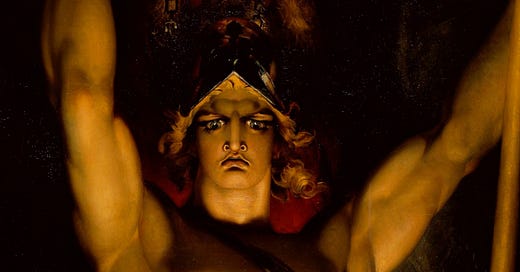John Milton’s epic poem Paradise Lost is an unchallenged classic for one reason — evil. Though he was far from the first to grapple with the problem of evil, Milton engaged it from a challenging angle: the perspective of evil itself.
Paradise Lost retells the story of the Devil’s origins — formerly the greatest of God’s angels, Satan grew enamored of his own beauty and sought to be worshiped. He rebelled against God’s rule and, after losing the ensuing war in Heaven, sought to undermine God’s creation by tempting Adam and Eve to sin.
In his great epic poem, Milton gave this well-known story a daring turn by casting the Devil as a quasi-protagonist. While Milton didn’t actually sympathize with the devil, he did choose to write him as a tragic hero who tugs at readers’ sympathies.
Why would he do this? In many ways, Milton’s commentary on rebellion goes deeper than most readers realize, proving just how little most people understand the true nature of evil.
If you’re ready to be one of the few who truly understands the epic that turned Heaven and Hell upside-down, read on…
Keep reading with a 7-day free trial
Subscribe to The Culturist to keep reading this post and get 7 days of free access to the full post archives.





